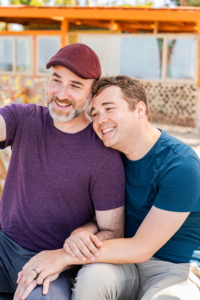Many know the High Holy Days to be a time of deep reflection. The days leading up to Yom Kippur, or the Day of Atonement, are not simply for soul-searching, but also for repairing strained relationships.
Teshuvah is the Jewish principle of repentance. Literally translating to “return,” it is a transformation of the soul, returning us to a divine state of being. Though teshuvah can be practiced at any time of the year, it is especially intrinsic to the Days of Awe. These are the ten days between Rosh Hashanah and Yom Kippur when there is a collective call to mend relationships and shape a more peaceful world.
Classic Jewish texts even give us a framework for effective and comprehensive atonement. Renowned medieval Jewish scholar Maimonides instructs in four steps:
- Verbally confess your mistake and ask for forgiveness.
- Express sincere remorse, resolving not to make the same mistake again.
- Do everything in your power to “right the wrong,” to appease the person who has been hurt.
- Act differently if the same situation happens again.
Time-tested, the steps detailed by Maimonides in the 12th century closely mirror the same steps many contemporary mental health experts advise when it comes to making meaningful apologies.
Though having a tested framework may ease the process, the thought of apologizing to someone we have wronged still has the potential to raise anxieties around personal accountability and vulnerability. Acknowledging misdeeds can feel awkward, and even painful. Apologizing requires one to humble themselves and face uncomfortable truths about their actions.
“Not everything that is faced can be changed, but nothing can be changed until it is faced.”
Working through uncomfortable feelings can lead to personal growth and stronger relationships. With a little reframing, we can come to see the act of teshuvah as an opportunity to create something beautiful.
Kintsugi (“golden joinery”) is the Japanese art of repairing broken pottery by mending and illuminating cracks with gold-dusted lacquer. Breaks and repairs are treated as part of an object’s history, rather than as something to conceal. Kintsugi reveres the flaws that befell an object and beautiful repairs. In the end, pottery may look different than the original creation, but is no less valuable. In fact, the object is often stronger, more stunning, and a one-of-a-kind piece. So too, a fracture or imperfection does not necessarily doom a relationship. Every relationship will experience a chip or crack in the form of disappointment or hardship. Repairing these breakages produces a unique relationship that has withstood the test of time. Kintsugi is a visual reminder of the beautiful role repair can play in mending our interpersonal connections.
Taking inspiration from this medieval Japanese artform, we can approach the Days of Awe and the act of teshuvah with more hope and assurance, knowing that what is broken can not only be mended, but mended beautifully.
In the spirit of kintsugi and teshuvah as well as tzedakah, giving to advance justice, another act of service during these Days of Awe, we have compiled suggestions for giving time and resources to build bridges across groups of people. In this piece, we’re focusing on Jerusalem-based initiatives that are vetted partners of Leichtag Foundation with exceptional teams and programs.
Jerusalem Model catalyzes a new generation of influencers, civil society leaders, creatives and grassroots social entrepreneurs who recognize Jerusalem’s diversity as the core creative driver of the city. Including Ultra-Orthodox, traditional and secular Jews, Palestinian Muslims and Christians, Ethiopian Israelis, members of the LGBTQ community and others, the Jerusalem Model draws on the distinct strengths of Jerusalem’s activist and civil society.
Kulna Yerushalayim works towards a shared society for residents of West and East Jerusalem. The group creates opportunities to introduce Arabs and Jews via an array of platforms and joint activities to bridge gaps and differences.
0202 provides access to life in East, West and Haredi (ultra-Orthodox) Jerusalem by translating articles and social media posts from all three communities into each other’s languages and into English. They make accessible news and social activities from the parts of Jerusalem that don’t reach external media, and clear the path to understanding the way “the other” sees Jerusalem.
Hands of Peace is a Hive member that offers American, Israeli, and Palestinian youth three-week, summer experiences in either Chicago or San Diego. Professional facilitators from the Middle East support youth in learning about “the other.” Teens share complicated and sometimes painful stories about conflict and explore peaceful solutions to foster equality, freedom, and justice.
Hanz Enyeart, Events and Communications Associate
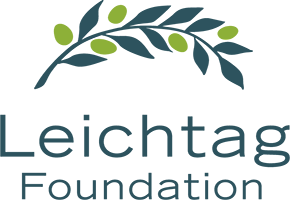
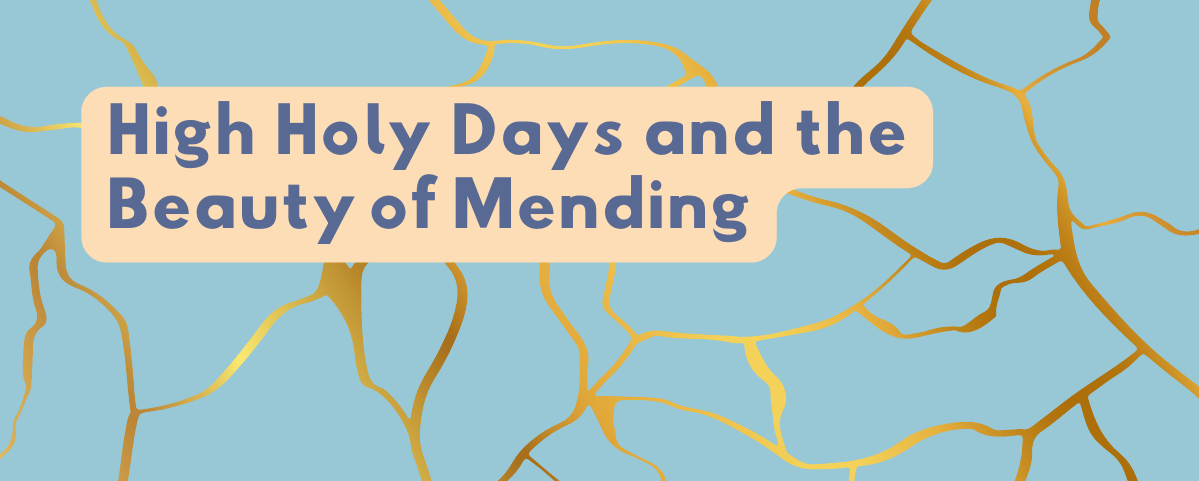
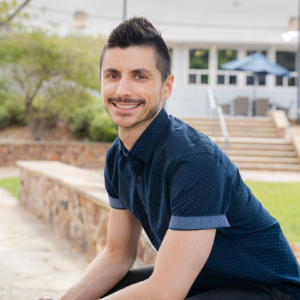


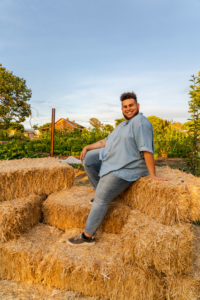 Black, Jewish and Queer. These three identities weave the fabric of who I am, but it took a long time to believe that they could exist together.
Black, Jewish and Queer. These three identities weave the fabric of who I am, but it took a long time to believe that they could exist together.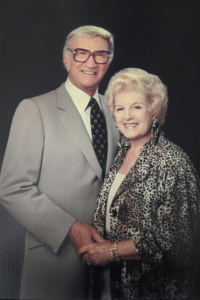 Lee and Toni Leichtag established the Leichtag Foundation in 1991 following the sale of their business. Lee and Toni were lifelong entrepreneurs with a passion for innovation and for supporting talent. They believed that only with big risk comes big reward. Both born to families in poverty, Toni to a single mother, they strongly believed in helping those most in need and most vulnerable in our community. While they supported many causes, their strongest support was for young children and the elderly, two demographics who particularly lack voice in our society.
Lee and Toni Leichtag established the Leichtag Foundation in 1991 following the sale of their business. Lee and Toni were lifelong entrepreneurs with a passion for innovation and for supporting talent. They believed that only with big risk comes big reward. Both born to families in poverty, Toni to a single mother, they strongly believed in helping those most in need and most vulnerable in our community. While they supported many causes, their strongest support was for young children and the elderly, two demographics who particularly lack voice in our society.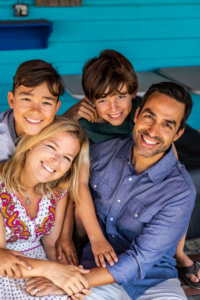 Lifelong Baltimoreans, Rabbi George and Alison Wielechowski and their sons, 11-year-old Lennon and 9-year-old Gideon, are more than pursuing the good life in Southern California. Having moved to San Diego more than three years ago, they are fulfilling a lifelong dream.
Lifelong Baltimoreans, Rabbi George and Alison Wielechowski and their sons, 11-year-old Lennon and 9-year-old Gideon, are more than pursuing the good life in Southern California. Having moved to San Diego more than three years ago, they are fulfilling a lifelong dream.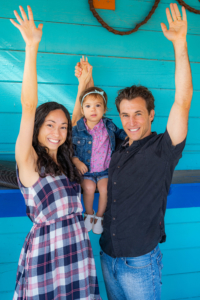
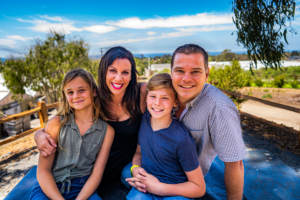
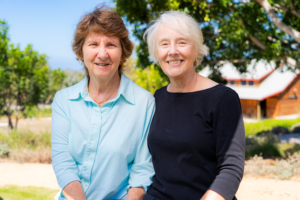

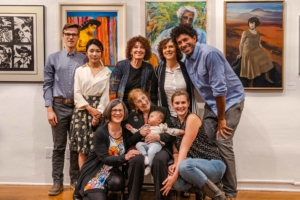
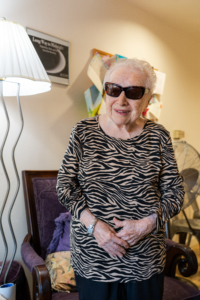
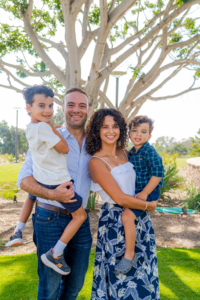
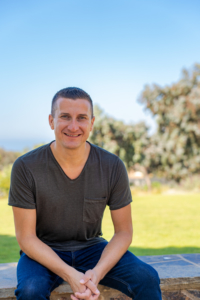 You would think that as the executive director of San Diego LGBT Pride, Fernando Zweifach López Jr., who uses the pronoun they, has done all the coming out they possibly can. A queer, non-binary individual who has worked for many years on civil rights issues, López also speaks openly and often about their father’s family, Mexican-American migrant workers who tilled the fields of rural California.
You would think that as the executive director of San Diego LGBT Pride, Fernando Zweifach López Jr., who uses the pronoun they, has done all the coming out they possibly can. A queer, non-binary individual who has worked for many years on civil rights issues, López also speaks openly and often about their father’s family, Mexican-American migrant workers who tilled the fields of rural California.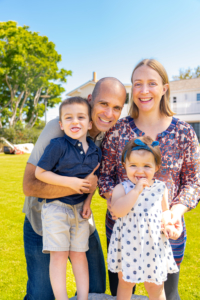 Stacie and Jeff Cook understand commitment. They live it.
Stacie and Jeff Cook understand commitment. They live it.